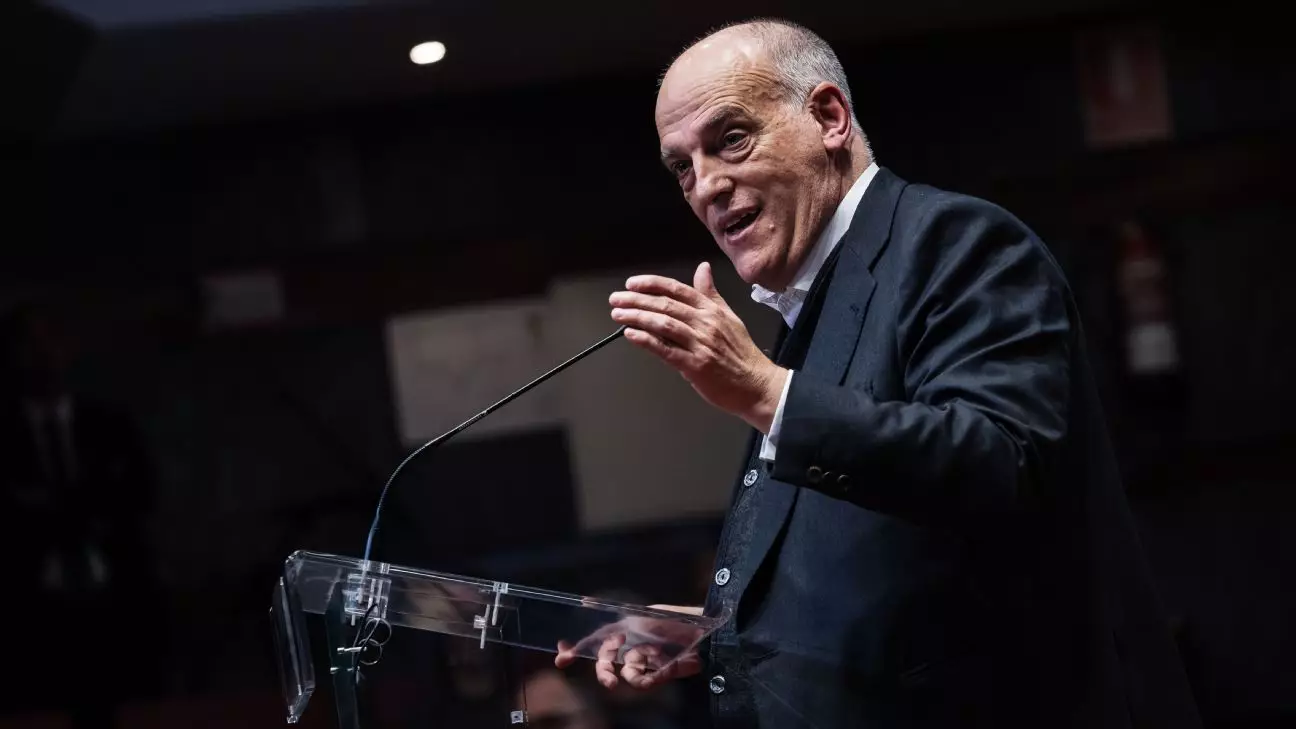Javier Tebas, the president of LaLiga, has controversially urged FIFA president Gianni Infantino to cancel the upcoming 2025 FIFA Club World Cup. This unprecedented call stems from what Tebas describes as widespread discontent among leagues and player unions regarding the tournament. Scheduled to be held in the United States from June 15 to July 13, 2025, the Club World Cup has sparked debates over its viability and the implications it carries for player wellbeing and domestic leagues. The challenges presented by expanding tournament formats mean the current club season could stretch longer than ever before, raising significant concerns about player fatigue and fixture congestion.
During a recent appearance at the Forum of the European Union of Clubs in Brussels, Tebas voiced specific grievances regarding FIFA’s financial preparations for the tournament. “You know that you have not sold the audiovisual rights for the budget you said for that Club World Cup,” Tebas asserted, highlighting what he claims is a shortfall in expected sponsorships and rights deals essential for financing the event. If these funds do not materialize, there is a legitimate risk that FIFA may have to rely on its reserve funds to cover the anticipated budget, thus destabilizing financial support to other federations and initiatives that FIFA argues it exists to help. The staggering estimate of over €1.5 billion that may need to be redirected poses questions about FIFA’s priorities and long-term financial health.
Player sentiment, too, is a significant factor in this unfolding situation. Concerns regarding player welfare are not just whispers in the wind; they have reached a crescendo wherein Manchester City’s Rodri has suggested that players are on the brink of a strike due to overwork. Having played 63 matches the previous season, culminating in the Euro 2024 final, Rodri’s predicament echoes the sentiments of many athletes overwhelmed by the packed match calendar. Failure to address these legitimate worries could risk alienating players from a system that should prioritize their health and performance.
The backlash against FIFA’s management is further amplified by the coordinated efforts of FIFPRO, the global players’ union, along with the European Leagues, which represents numerous domestic leagues. Together, they’ve lodged an official complaint with the European Commission, claiming that FIFA is abusing its dual role as a tournament organizer and regulator. This situation might set a precedent; as governance structures in global football come under scrutiny, the ruling body may need to reevaluate its strategies and listen to the voices of those directly affected.
FIFA’s Standpoint
Interestingly, internal sources indicate that FIFA believes the Club World Cup will have a negligible impact on the football calendar, asserting that it will occur every four years and only entail a maximum of seven matches. However, this perspective overlooks the cumulative burden placed on players year-in and year-out by multiple tournaments, league matches, and international duty, compelling an urgent need for FIFA to revisit its scheduling methods and the overall framework of global competitions. As the debate rages on, it remains to be seen how FIFA will respond to these growing concerns and the broader implications for accessibility and equity within football.

